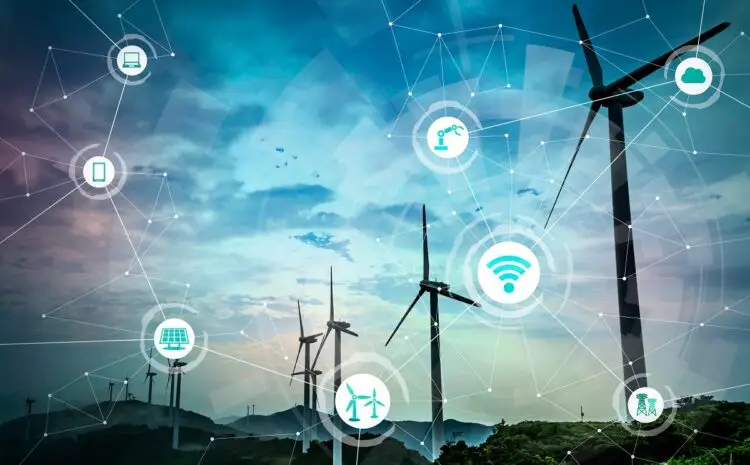Internet of Things revolutionizes the renewable energy sector

Renewable energy investors need service providers who are familiar with the investment landscape at a local level, can adapt to the latest technologies, and have a clear vision of market evolution and regulations. It was this conclusion that led to the founding of Kaiserwetter Energy Asset Management, the world’s first Enertech company, in 2012. This new sector includes organizations that use new technology to find innovative solutions to increase the efficiency and performance of renewable energy portfolios based on an advanced asset management.
Given the current context of climate change, coupled with the increased competition within the renewable energy market, energy investors are being forced to develop new ways to increase production and efficiency by limiting the use of fossil fuels and reducing prices throughout the value chain. It is increasingly important for asset managers to be able to integrate and transparently manage the technical and financial performance of their energy portfolios, especially to minimize the risk of their investors.
The potential of IoT
The possibilites of the Internet of Things (IoT) and smart-data-analytics has revolutionized the future of the energy sector. Along with a solid digital infrastructure, IoT allows access to data almost anywhere in the world and has the ability to analyse data, mitigating the risk of investments in energy assets and to maximize the performance of portfolios. This type of analytics is the driving force behind standardised management of energy assets around the globe. As such it is possible to generate power, monitor performance and manage portfolios efficiently within large networks.
Successful smart data analysis can also help investors (banks, funds, etc.) increase the productivity of their assets. If anything can encourage the financial community to further their investments, it is the promise of lowest risks and highest returns. It further enables new private investors to enter the renewable market, attracted by the potential value and the sector’s inevitable future growth.
Digitalization unlocks the potential of renewables.
The rise of renewables is not only environmentally beneficial, but also for the economy, with a recent industry study demonstrating that global GDP would increase by over 1% to about $1.3 trillion if the market share of renewables were doubled by 2030[1]. However, this will only be possible if renewable energy investors can rely on investment security, professional risk management, and standardised portfolio management for their assets, from anywhere and at any time. To do this, all we need is the Internet and the capacity to analyse smart data.
In response to this demand, Kaiserwetter has launched ARISTOTELES, a digital platform designed to support the executive level of investment companies, financial institutions and financing banks to revolutionize their business strategies. ARISTOTELES integrates the possibilities of Internet and Things (loT), smart data analytics and predictive data simulation by combining technical with especially all financial data.
ARISTOTELES is designed to substantially maximize the performance of renewable energy portfolios while, at the same time, minimizing its risks. This ensures maximum transparency for investments in renewable energy assets on a global level – no matter whether investors are based in Paris, Hong Kong or New York. The digitalization of power generation and energy asset management by using IoT and smart-data-analytics offers unexpected opportunities of boosting the expansion of renewable energies.
The next step for the innovative Enertech company is consolidating its presence in the Americas. Kaiserwetter opened a branch in New York, which functions as the data maining hub for North and South America. Kaiserwetter has set its sights on the region due to the increase in US investors’ appetite generating investments in renewable energies worldwide.
[1] Renewable Energy Benefits: Measuring the Economics by IRENA (International Renewable Agency)




